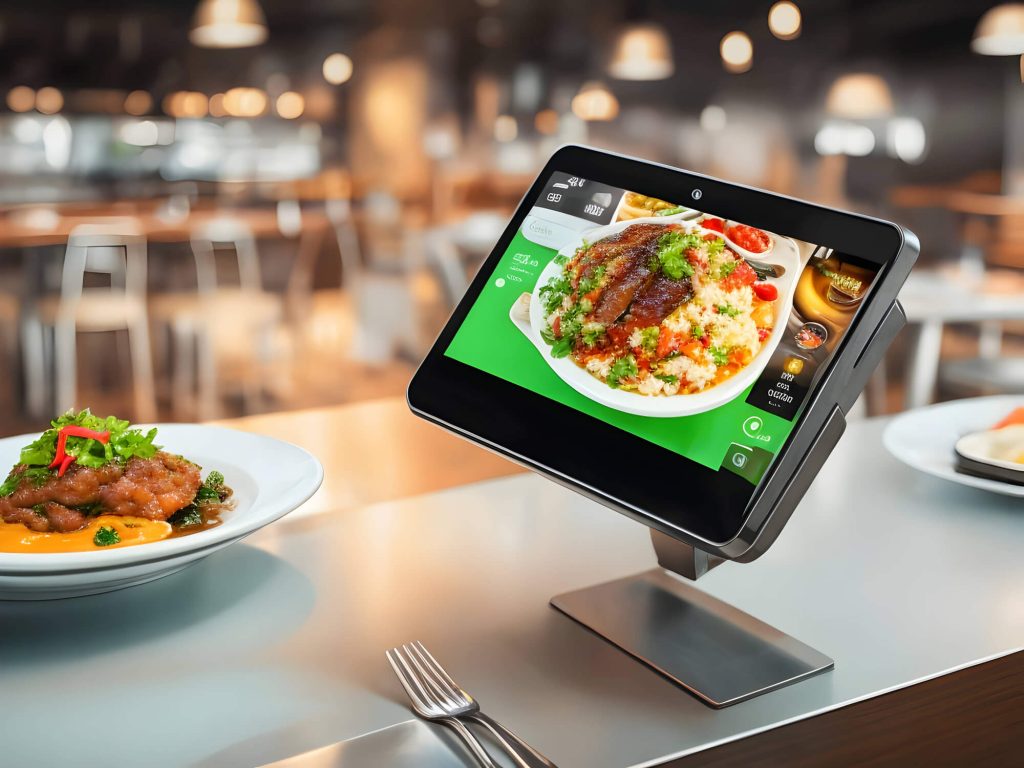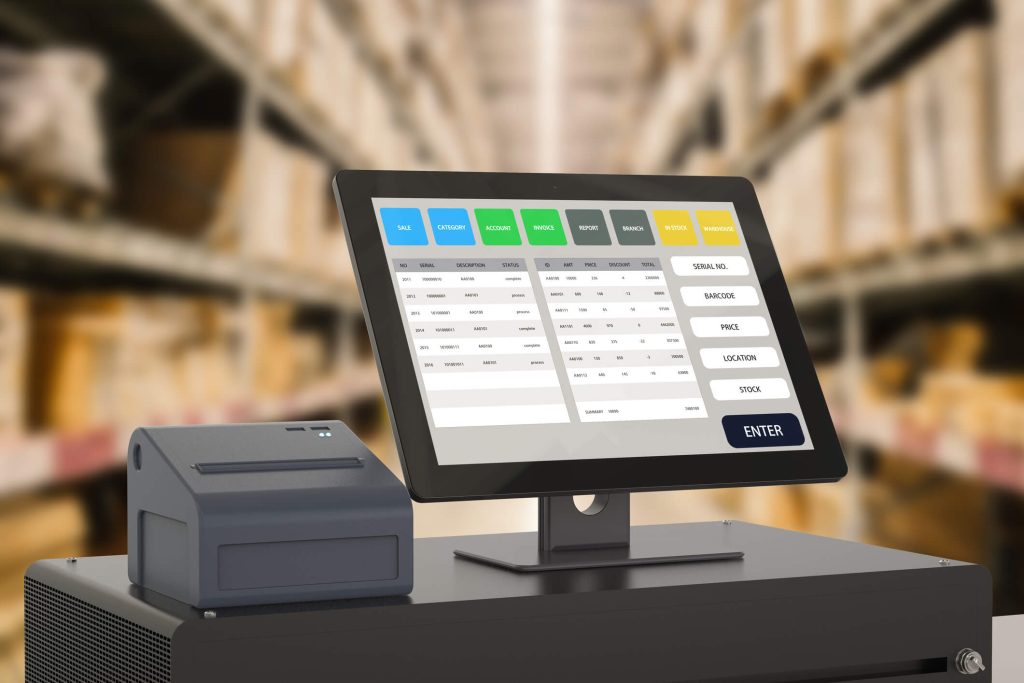In today’s fast-paced business environment, having an efficient and reliable point-of-sale (POS) system is essential for any business. A POS system not only helps streamline transactions but also provides valuable insights into sales, inventory management, and customer behavior. However, with numerous options available in the market, choosing the right POS system for your business can be a daunting task. This comprehensive guide will walk you through the factors to consider when selecting a POS system and compare cloud-based vs. traditional POS systems to help you make an informed decision.
Factors to Consider When Selecting a POS System
When it comes to selecting a POS system, there are several factors that you need to consider to ensure it aligns with your business needs and goals. Let’s explore these factors in detail.
Understanding Your Business Needs and Goals
Before diving into the world of POS systems, it’s crucial to have a clear understanding of your business needs and goals. Consider the type of business you operate, the volume of transactions you handle, and the specific features you require. For example, a restaurant may need a POS system with table management and kitchen display capabilities, while a retail store may prioritize inventory management and customer relationship management (CRM) features.
Scalability and Flexibility
As your business grows, your POS system should be able to scale and adapt to your changing needs. Look for a system that can accommodate an increasing number of users, locations, and products. Additionally, consider the flexibility of the system in terms of customization options and integrations with other software or hardware solutions.
Integration with Existing Systems
If you already have existing systems in place, such as inventory management or accounting software, it’s essential to ensure that your chosen POS system can seamlessly integrate with them. Integration eliminates the need for manual data entry and allows for real-time synchronization of information, saving time and reducing errors.
User-Friendliness and Training Requirements
A user-friendly POS system is crucial for smooth operations and efficient staff training. Look for a system with an intuitive interface, easy navigation, and comprehensive training resources. Consider the learning curve for your staff and the level of technical support provided by the POS system provider.
Security and Compliance
Security is a top priority when it comes to handling customer data and processing transactions. Ensure that the POS system you choose complies with industry standards and regulations, such as Payment Card Industry Data Security Standard (PCI DSS) compliance. Look for features like encryption, tokenization, and secure payment processing to protect sensitive information.
Comparing Cloud-Based vs. Traditional POS Systems
Once you have a clear understanding of the factors to consider when selecting a POS system, it’s important to explore the differences between cloud-based and traditional POS systems. Let’s delve into the advantages and considerations of each.
Cloud-Based POS Systems: Advantages and Considerations

Cloud-based POS systems, also known as Software-as-a-Service (SaaS) solutions, have gained popularity in recent years due to their accessibility and scalability. Here are some advantages and considerations of using a cloud-based POS system.
Accessibility and Mobility
One of the key advantages of a cloud-based POS system is its accessibility from anywhere with an internet connection. This allows business owners and managers to monitor sales, inventory, and other data in real-time, even when they are not physically present at the business location. Additionally, cloud-based systems often offer mobile apps, enabling staff to process transactions on tablets or smartphones, enhancing customer service and reducing wait times.
Cost-Effectiveness and Scalability
Cloud-based POS systems typically operate on a subscription-based model, eliminating the need for upfront hardware and software investments. This makes them more cost-effective, especially for small businesses with limited budgets. Additionally, these systems can easily scale as your business grows, allowing you to add new users, locations, or features without significant upfront costs.
Real-Time Data and Analytics
Cloud-based POS systems provide real-time data and analytics, allowing you to make informed business decisions. You can track sales, inventory levels, and customer behavior in real-time, enabling you to identify trends, optimize inventory management, and personalize customer experiences. These insights can help you streamline operations, improve profitability, and drive business growth.
Internet Dependency and Downtime Risks
One of the considerations of using a cloud-based POS system is its dependency on internet connectivity. If your internet connection goes down, you may not be able to process transactions or access critical data. However, many cloud-based systems offer offline mode functionality, allowing you to continue processing transactions and syncing data once the internet connection is restored. It’s important to have a reliable internet service provider and a backup plan in case of connectivity issues.
Traditional POS Systems: Pros and Cons

While cloud-based POS systems offer numerous advantages, traditional POS systems still have their place in certain industries. Let’s explore the pros and cons of using a traditional POS system.
Reliability and Offline Functionality
Traditional POS systems are known for their reliability and offline functionality. They operate on local servers or hardware, allowing businesses to continue processing transactions even in the absence of an internet connection. This can be particularly beneficial for businesses located in areas with unreliable internet connectivity or during power outages.
Customization and Control
Traditional POS systems often offer more customization options and control over the software and hardware. This can be advantageous for businesses with unique requirements or specific workflows that may not be easily accommodated by cloud-based systems. Additionally, businesses can choose their preferred hardware components, such as cash registers, barcode scanners, and receipt printers, to create a tailored solution.
Upfront Costs and Maintenance
One of the drawbacks of traditional POS systems is the upfront costs associated with purchasing hardware and software licenses. These costs can be significant, especially for small businesses with limited budgets. Additionally, businesses are responsible for maintaining and updating the hardware and software, which can require technical expertise and additional expenses.
Limited Mobility and Accessibility
Unlike cloud-based systems, traditional POS systems are limited in terms of mobility and accessibility. They are typically tied to a physical location and require on-site hardware and servers. This can restrict business owners and managers from accessing real-time data and managing operations remotely.
Frequently Asked Questions
To further assist you in your decision-making process, let’s address some frequently asked questions about POS systems.
What is a POS system, and why do I need one for my business?
A POS system is a software and hardware solution that allows businesses to process transactions, manage inventory, and track sales. It provides valuable insights into business operations and helps streamline processes. A POS system is essential for businesses to efficiently handle transactions, improve customer experiences, and gain actionable insights for decision-making.
How do I determine the right POS system for my specific business?
To determine the right POS system for your business, consider factors such as your business needs and goals, scalability, integration capabilities, user-friendliness, security, and compliance. Evaluate different options, request demos or trials, and seek recommendations from industry peers or experts. It’s important to choose a system that aligns with your specific requirements and can grow with your business.
What are the key features to look for in a POS system?
Key features to look for in a POS system include inventory management, sales reporting and analytics, customer relationship management (CRM), employee management, integration capabilities, and security features. Assess your business requirements and prioritize the features that are most important for your operations.
Can I integrate my existing inventory management or accounting software with a POS system?
Many POS systems offer integration capabilities with popular inventory management or accounting software. However, it’s important to check if your chosen POS system supports the integration you require. Consult with the POS system provider or your software vendor to ensure compatibility and seamless data synchronization.
How secure are cloud-based POS systems?
Cloud-based POS systems prioritize security and compliance to protect sensitive customer data and transactions. Look for systems that are PCI DSS compliant and offer features like encryption, tokenization, and secure payment processing. Additionally, choose a reputable provider with a track record of maintaining high-security standards.
What are the potential risks and challenges of using a cloud-based POS system?
The main risks and challenges of using a cloud-based POS system include internet dependency, downtime risks, and potential data breaches. It’s important to have a reliable internet connection and a backup plan in case of connectivity issues. Additionally, choose a provider that offers robust security measures and regularly updates their system to address vulnerabilities.
Conclusion
In conclusion, choosing the right POS system for your business is a crucial decision that can significantly impact your operations and success. By considering factors such as your business needs and goals, scalability, integration capabilities, user-friendliness, security, and compliance, you can narrow down your options and make an informed decision. Additionally, understanding the differences between cloud-based and traditional POS systems can help you determine which solution aligns best with your business requirements. Whether you opt for a cloud-based system with its advantages of accessibility, cost-effectiveness, and real-time data, or a traditional system with its reliability and customization options, it’s essential to weigh the pros and cons carefully. By doing so, you can select a POS system that streamlines your operations, enhances customer experiences, and contributes to your business growth.

